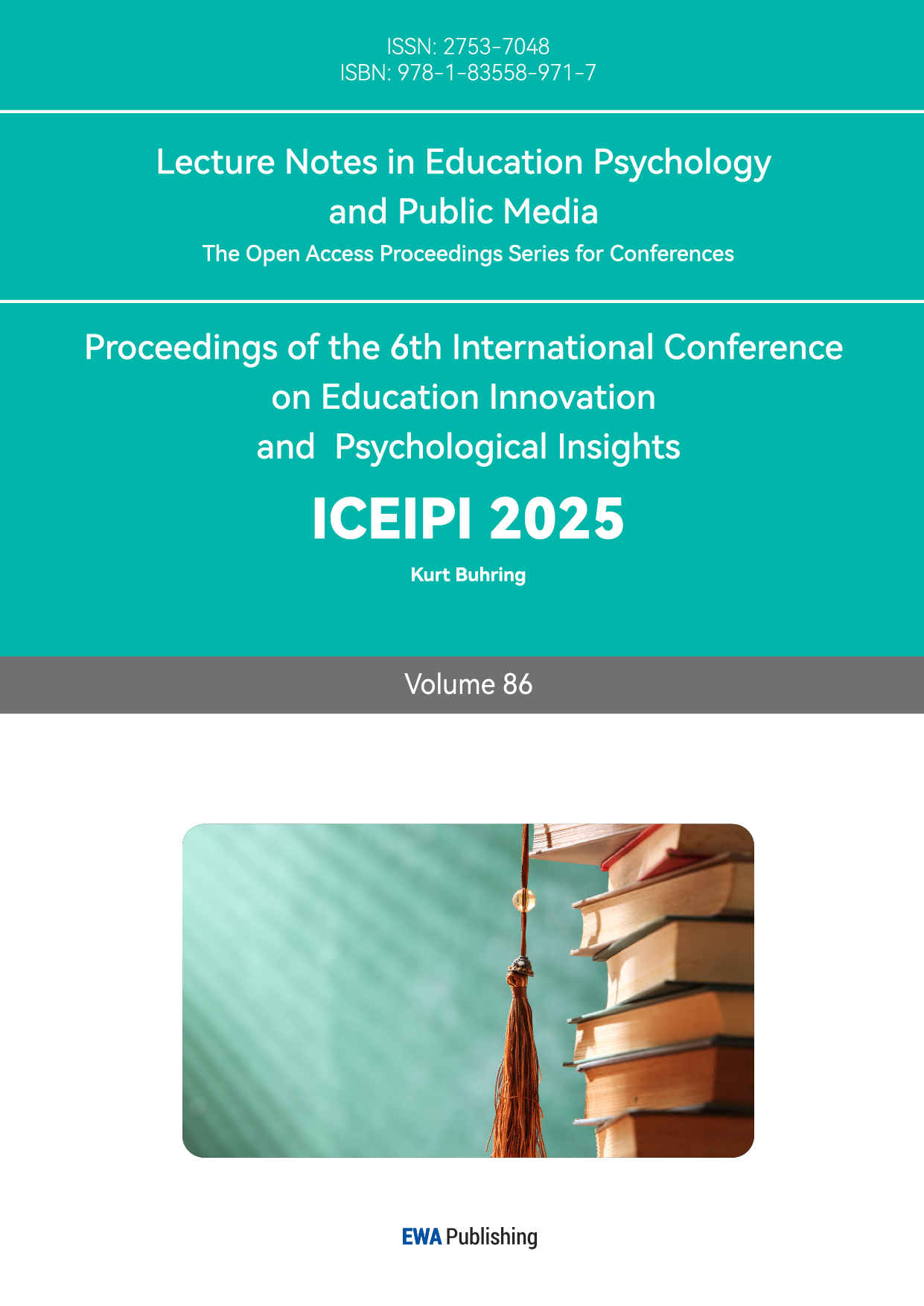1. Introduction
The League of Legends, for short LOL, was developed by Riot Games in 2009. On account of a great age for a modern game, discussions like The League of Legends are going to die out, is getting cold, are emerging every year, but numbers never lie. According the date of ActivePlayer, 130,527,889 people logged into League of Legends and played at least one game in July 2024 [1]. Riot doesn’t often share League of Legends player stats anymore, but its most recent regional player stats say that there are 75 million players in China, 34.83 million in Western Europe, 27.89 million in North America, 19.82 million in South Korea, 18.42 million in Northern and Eastern Europe, 1.14 million in Brazil, 7.72 million in Turkey, 6.79 million in northern Latin America, 6.05 million in southern Latin America, 4.88 in Russia, 2.74 million in Oceania, 1.73 million in Japan [1]. What are the reasons for League of Legends’ enduring vitality? Game psychology gives an answer.
To begin with, some definitions of The League of Legends should be cleared.

Figure 1: Summoner’s rift
League of Legends is a multiplayer on line battle arena (MOBA) game where players compete in a 5v5 match on Summoner’s Rift, as shown in Figure 1. Players choose unique champions to work with their team and destroy enemy’s defensive turrets and ultimately their main inhibitor to win victory. The game revolves around securing resources, controlling lanes (top, mid, bot), and the jungle to gain an advantage.
This paper indicates that League of Legends has a great game design, which satisfying players’ psychological needs for competence, management, interacting, surprise, uniqueness and identity.
2. Game Psychology Application.
2.1. Motivation and Player Needs
League of Legends’ design satisfies players’ diverse psychological needs, based on the self-determination theory [2] and gamification principles [3]. First need is competence and mastery. The League of Legends offers clear skill progression path. For example, the ranking system shown in Figure 2, from Iron to Challenger, and the hero mastery, maximum level 7. Players can experience achievement by earning League Points which determines your ranking in the competitive ladder or improving your hero mastery to gain a special sign. Player can practice and master skill sets for different champions to improve their game strength thus gain achievement.
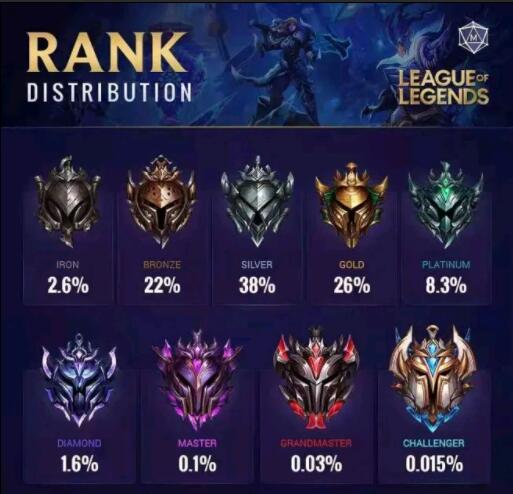
Figure 2: Rank distribution
The second need is social belonging. League of Legends emphasizes on teamwork. Each game is divided into a confrontation period (growth and probably kill), a mid-stage group battle (battle for control of the map), and if the game hasn’t ended yet, a late decisive battle (cooperate to destroy the enemy main inhibitor). Every period requires teamwork in varying degrees, especially in the group battle. Even in the period of growth, it still requires your cooperation with the jungle. The cooperation within players can strengthen players’ social connections. And through the friend system, players can develop a long-term social network. Therefore, the teamwork and the friend system provide a sense of social belonging when playing the game, which improving the quality of game experience.
The third need is independence and uniqueness. League of Legends provides multiple champions and playstyle allowing players to showcase individuality. League of Legends designs champions of different species, genders, skin color, statures, appearance, to make sure every player can find an identity in this game. Besides, different styles of skins like Figure3 and Figure 4, and different equipment strategies give a sense of uniqueness.

Figure 3: simple skin for Corki
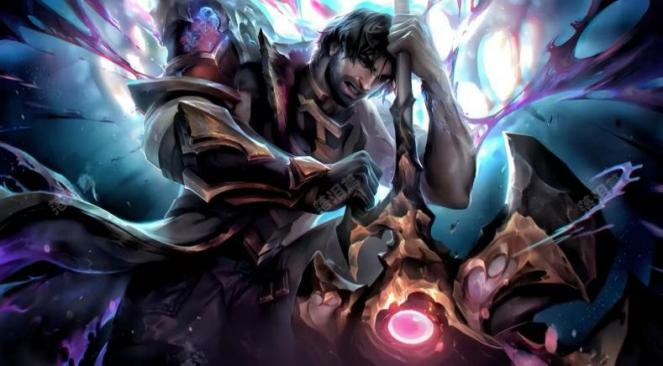
Figure 4: fancy skin for Jayce
The fourth need is novelty and surprise. As shown in Figure 5, League of Legends usually releases an update every two weeks and introduces five new champions on average per year. Make sure the new elements are always emerged in the game. Also, the game emphasizes diverse hero choices, equipment combinations, and tactical adaptations, such as split-pushing, team fighting, or backdooring, which is the most surprising. All these make this game fresh for every game.
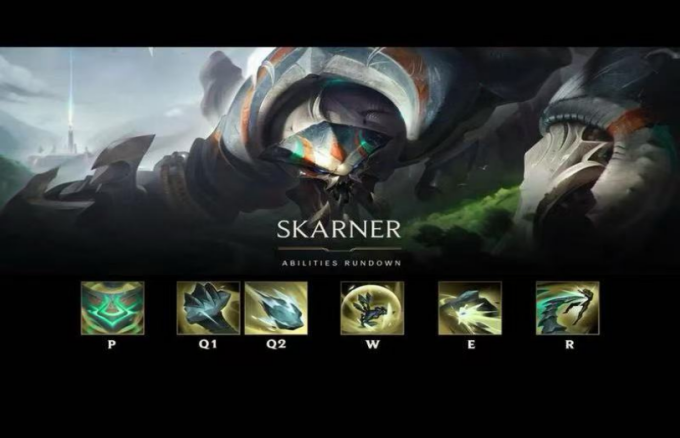
Figure 5: Hero change and update.
3. Game Mechanisms and Habit Formation
The League of Legends has a system of reward mechanisms and habit formation. If the player wins a victory in rank, he can get experience points, blue essence used to unlock new champions, and League Points. And if he performs well in the game or overall team success, may reward him with Hextech Chests (Figure 6) or Key fragments, which can be used to unlock chests that contain skin shards, emotes, and other items.
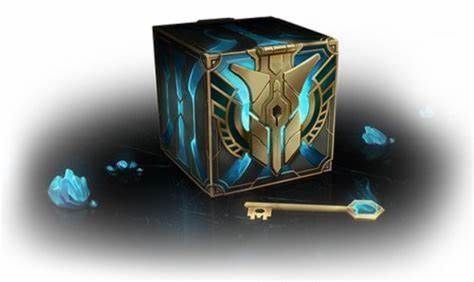
Figure 6: Hextech Chests
Besides those rewards, it brings a sense of achievement and satisfaction after winning a game. Also, it might cause the idea of “one more game”, especially when in a winning streak or losing streak. Players believe they will still win or they won’t lose in the next game. For the social psychological effects, League of Legends can lead to a Parasocial interaction [4], which means players’ emotional attachment to champions. Besides, communication and cooperation can enhance group identity, thus providing team belonging. The competitive psychology and honor system create competitive pressure with emotion high and low through the League Points increase and decrease. A fluctuation of emotion is better than an enduring high or low.
3.1. Hero Design and Immersion
League of Legends produces a proteus effect [5] among players. Players’ behavior adapts to the chosen hero’s traits. For example, if they chose a tank hero, they may prefer to absorb damage and protect teammates, like Shen and Galio, which is shown in Figure 7, is strong and lofty, offering a sense of responsibility to protect teammates; if they chose an assassin like Zed or Katarina, they might prefer to attack and play aggressively. And due to the excellent work of champions’ backstories, players get immersed into the game when they have a psychological identification with champions. Like Jinx’s rebellious nature, gain a lot of popularity and more appearance rate.

Figure 7: Galio, protective tank
3.2. Emotional Regulation and Psychological Effects
League of Legends can make players release positive emotions while playing the game. A victory or an excellent operation can relieve stress and elevate mood, making you enjoyable. Sometimes, because of the high operability and the tense situation in the game, players might get into “flow” [6], which means to be fully immersed; players will totally forget the unhappiness, anger or frustration. Experiencing deep focus, engagement and enjoyment. However, anything has two sides. Losses or toxic teammate interaction may lead to frustration or anxiety, causing negative emotion.
3.3. Game Community and Social Impacts
League of Legends’ events are undoubtedly the most popular esports competitions in the world, especially when it comes to the Mid-Season Invitational (MSI) and World Championship (Worlds). According to the date of Riot, Worlds 2024 final: T1 vs BLG, global viewership, including China peaks at 50 million [7]. Esports tournaments and streaming have created tens of millions of fans for The League of Legends. Besides, through watching the professional players and streamers, people can improve their performance and thus be more motivated in games. What’s more, many professional players and streamers have become the object of psychological identification of players, bringing a sense of belonging. The multiple derivatives play an important role in keeping The League of Legends hot as well. For example, Teamfight Tactics, Arane (Figure 8), K/DA, etc. It seems like Riot brings products to every aspect and gets good feedbacks. All of these forms a huge social ecology.
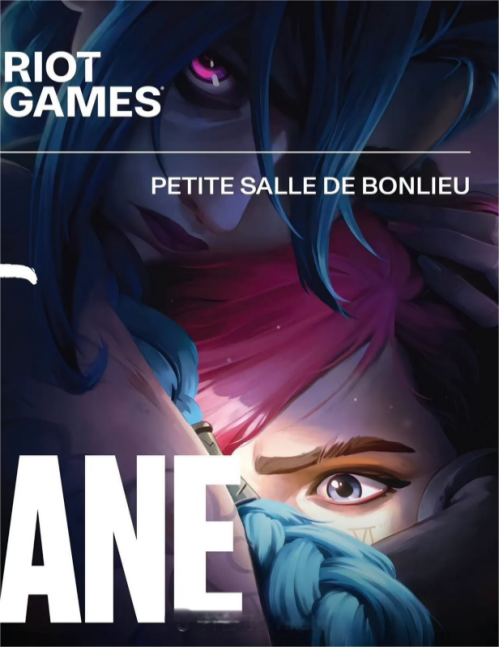
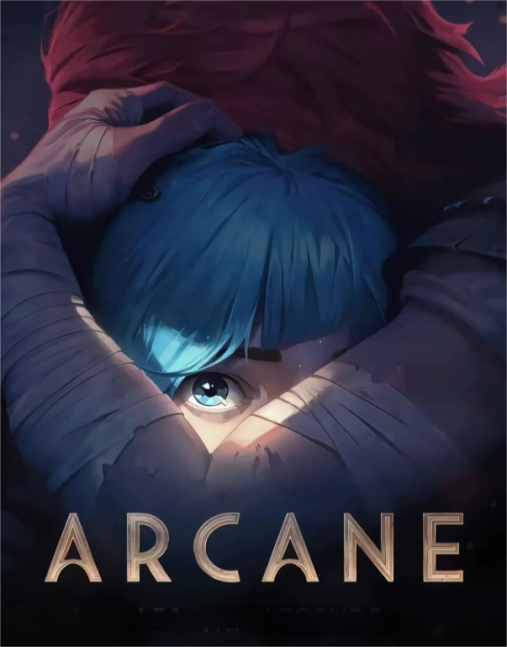
Figure 8: Arcane
3.4. Psychological Health and Potential Risks
However, while League of Legends has satisfied players’ psychological needs and foster a sense of community, it’s also important to address some potential psychological risks. The competitive nature and the addictive appeal of “one more game” mentality may easily lead to over-immersion, making it difficult to manage gaming time, which may negatively impact their personal and academic lives.
Additionally, the high-pressure environment created by competitive matches may cause a feeling of frustration, anger, or even despair, especially when players encounter frequent losses or toxic interaction with teammates.
Besides what happens in game, what happens in real world caused by the game is also worth paying attention to. Social conflicts caused by the game, such as disagreements with friends or family about time management, can also lead to negative emotions. For some people, these factors may cause mental health issues, such as anxiety, depression, or gaming addiction.
4. Conclusion
In conclusion, League of Legends stands as a remarkable example of successful game design from the perspective of game psychology. It has effectively satisfied the diverse psychological needs of players, fostering engagement and loyalty through dynamic updates, immersive narratives, and a healthy community ecosystem. By providing a sense of accomplishment, identity, and social connection, the game has not only attracted new players but also retained existing ones, solidifying its position as one of the most popular games globally.
However, along with these achievements, some challenges and potential risks remain. Risks such as gaming addiction, over-immersion, and toxic interactions highlight the need for more attention. The ranking system, while enhancing competition, may also lead to stress and frustration for some players. These aspects indicate the importance of balancing entertainment value and competitiveness with players' psychological health.
Looking ahead, future research and development in this field can focus on several critical areas. Game developers might focus on improving game balance and optimizing design elements to reduce frustration and improve user satisfaction. Additionally, the application of artificial intelligence in game design, particularly in player matching and personalized content delivery, could provide solutions to current challenges. With the rapid development of the e-sports industry, studying its economic and cultural impact will become an important topic. Lastly, cross-cultural studies could deepen our understanding of how games like League of Legends resonate with players from diverse backgrounds, thus helping developers to create more inclusive and globally appealing experiences.
References
[1]. Shovel top guide. League of Legends -- Is LOL dying in 2024? January 4, 2024. 1https://mr.mbd.baidu.com/r/1y6zPDVO7Hq?f=cp&rs=964823723&ruk=BkYRAO6sIi6SIGPpgLxV_w&u=aa21f2f39b85c6a8&urlext=%7B%22cuid%22%3A%22gaHuaY8pH8_DaviJ_u2At0ifvi0huHfQ0uSd80aXvi0AP2aMjP-gi_i51P5siSOyHatmA%22%7D
[2]. Hennessey, Beth A. “Self-Determination Theory and the Social Psychology of Creativity.” Psychological Inquiry, vol. 11, no. 4, 2000, pp. 293–98. JSTOR, http://www.jstor.org/stable/1449624. Accessed 21 Feb. 2025.
[3]. de la Hera, Teresa, et al. “Persuasive Gaming: From Theory Based Design to Validation and Back. An Introduction.” Persuasive Gaming in Context, edited by Teresa de la Hera et al., Amsterdam University Press, 2021, pp. 12–15. JSTOR
[4]. Milman, Daisy K. and Mills, Devin, The Relationship between Parasocial Friendship Quality with Non-Playable Video Game Characters, Gaming Motivations, and Obsessive vs Harmonious Passion. Available at SSRN: https://ssrn.com/abstract=4225542 or http://dx.doi.org/10.2139/ssrn.4225542
[5]. Fox, J., Bailenson, J. N., & Tricase, L. (2013). The embodiment of sexualized virtual selves: The Proteus effect and experiences of self-objectification via avatars. Computers in Human Behavior, 29, 930-938.
[6]. Beard, Karen Stansberry, and Mihaly Csikszentmihalyi. “Theoretically Speaking: An Interview with Mihaly Csikszentmihalyi on Flow Theory Development and Its Usefulness in Addressing Contemporary Challenges in Education.” Educational Psychology Review, vol. 27, no. 2, 2015, pp. 353–64. JSTOR, http://www.jstor.org/stable/43548480. Accessed 21 Feb. 2025.
[7]. Saralolita. S14 final audience peak 50 million, domestic audience accounted for more than 80%. League of Legends, 2024-11-22. https://lol.qq.com/news/detail_m.html?docid=16299448265141385914
Cite this article
Liu,S. (2025). Analysis of the Applications of Game Psychology in League of Legends. Lecture Notes in Education Psychology and Public Media,86,28-33.
Data availability
The datasets used and/or analyzed during the current study will be available from the authors upon reasonable request.
Disclaimer/Publisher's Note
The statements, opinions and data contained in all publications are solely those of the individual author(s) and contributor(s) and not of EWA Publishing and/or the editor(s). EWA Publishing and/or the editor(s) disclaim responsibility for any injury to people or property resulting from any ideas, methods, instructions or products referred to in the content.
About volume
Volume title: Proceedings of the 6th International Conference on Educational Innovation and Psychological Insights
© 2024 by the author(s). Licensee EWA Publishing, Oxford, UK. This article is an open access article distributed under the terms and
conditions of the Creative Commons Attribution (CC BY) license. Authors who
publish this series agree to the following terms:
1. Authors retain copyright and grant the series right of first publication with the work simultaneously licensed under a Creative Commons
Attribution License that allows others to share the work with an acknowledgment of the work's authorship and initial publication in this
series.
2. Authors are able to enter into separate, additional contractual arrangements for the non-exclusive distribution of the series's published
version of the work (e.g., post it to an institutional repository or publish it in a book), with an acknowledgment of its initial
publication in this series.
3. Authors are permitted and encouraged to post their work online (e.g., in institutional repositories or on their website) prior to and
during the submission process, as it can lead to productive exchanges, as well as earlier and greater citation of published work (See
Open access policy for details).
References
[1]. Shovel top guide. League of Legends -- Is LOL dying in 2024? January 4, 2024. 1https://mr.mbd.baidu.com/r/1y6zPDVO7Hq?f=cp&rs=964823723&ruk=BkYRAO6sIi6SIGPpgLxV_w&u=aa21f2f39b85c6a8&urlext=%7B%22cuid%22%3A%22gaHuaY8pH8_DaviJ_u2At0ifvi0huHfQ0uSd80aXvi0AP2aMjP-gi_i51P5siSOyHatmA%22%7D
[2]. Hennessey, Beth A. “Self-Determination Theory and the Social Psychology of Creativity.” Psychological Inquiry, vol. 11, no. 4, 2000, pp. 293–98. JSTOR, http://www.jstor.org/stable/1449624. Accessed 21 Feb. 2025.
[3]. de la Hera, Teresa, et al. “Persuasive Gaming: From Theory Based Design to Validation and Back. An Introduction.” Persuasive Gaming in Context, edited by Teresa de la Hera et al., Amsterdam University Press, 2021, pp. 12–15. JSTOR
[4]. Milman, Daisy K. and Mills, Devin, The Relationship between Parasocial Friendship Quality with Non-Playable Video Game Characters, Gaming Motivations, and Obsessive vs Harmonious Passion. Available at SSRN: https://ssrn.com/abstract=4225542 or http://dx.doi.org/10.2139/ssrn.4225542
[5]. Fox, J., Bailenson, J. N., & Tricase, L. (2013). The embodiment of sexualized virtual selves: The Proteus effect and experiences of self-objectification via avatars. Computers in Human Behavior, 29, 930-938.
[6]. Beard, Karen Stansberry, and Mihaly Csikszentmihalyi. “Theoretically Speaking: An Interview with Mihaly Csikszentmihalyi on Flow Theory Development and Its Usefulness in Addressing Contemporary Challenges in Education.” Educational Psychology Review, vol. 27, no. 2, 2015, pp. 353–64. JSTOR, http://www.jstor.org/stable/43548480. Accessed 21 Feb. 2025.
[7]. Saralolita. S14 final audience peak 50 million, domestic audience accounted for more than 80%. League of Legends, 2024-11-22. https://lol.qq.com/news/detail_m.html?docid=16299448265141385914





